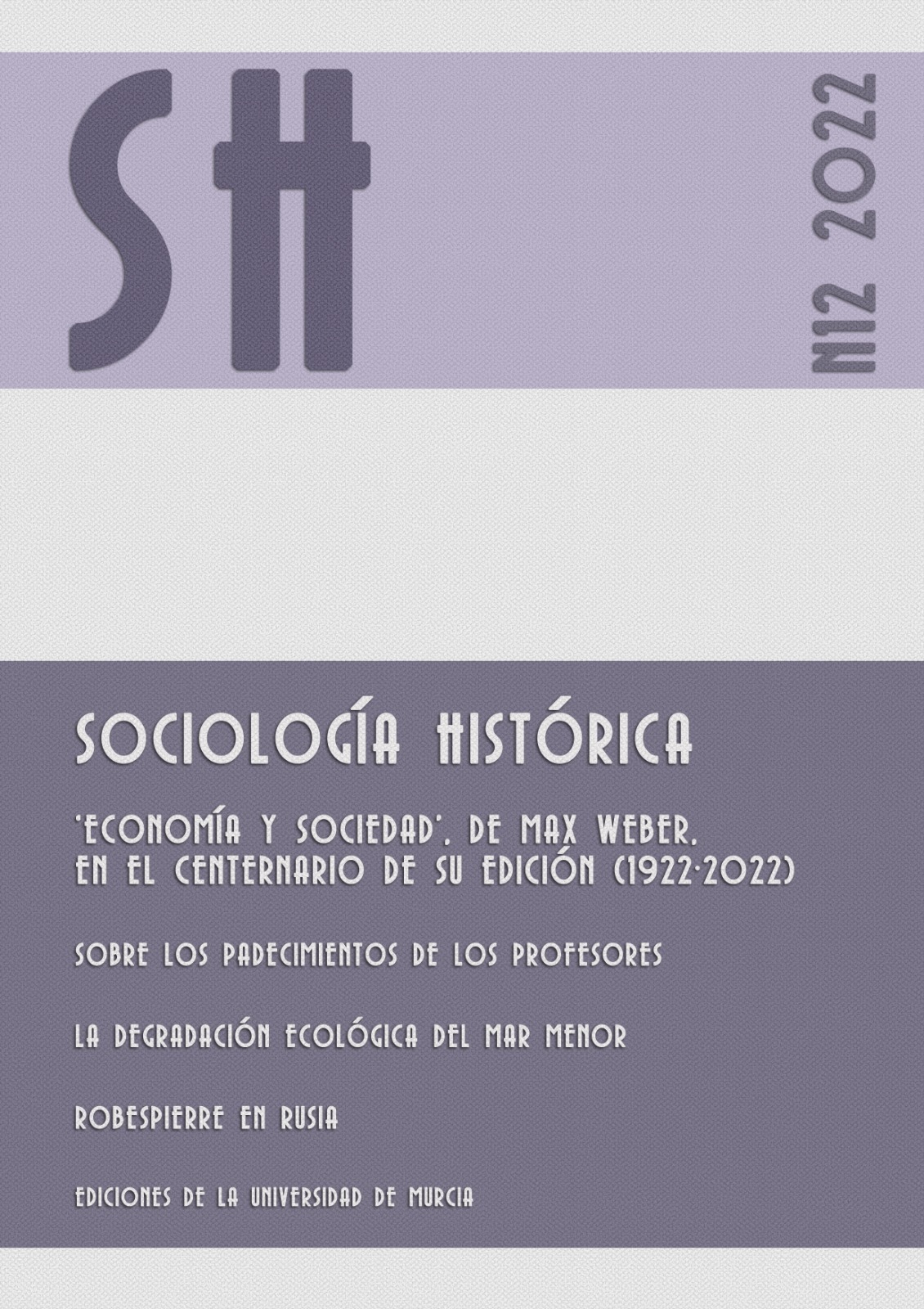The time that has become free. Machinism and technological change
Abstract
This paper explores the contradiction pointed out by Marx between the progress of productive technology, which entails a potential decrease in working time, and its use under conditions of capitalist production, in relation to Ernest Mandel’s work Late Capitalism. To this end, the analyses carried out by Marx in Capital on machinery and large-scale industry, which Mandel takes as the basis of his work, are addressed first. Next, Mandel’s interpretation of the history of capitalism, the place he assigns in it to technological change and his characterization of the so-called late capitalism, in which he detects a constant pressure for technological innovation that stresses the internal contradictions of this productive regime, are presented. Finally, we reflect on the limitations of Mandel’s perspective in the face of the economic crisis that began at the end of the 1960s and its neoliberal overcoming.
Downloads
-
Abstract314
-
PDF (Español (España))327
References
BENJAMIN, W. (1991): “Über einige Motive bei Baudelaire”, Gesammelte Schriften I, Frankfurt, Suhrkamp, pp. 605-653.
BOLTANSKI, L.-CHIAPELLO, E. (2002): El nuevo espíritu del capitalismo, Madrid, Akal.
FOUCAULT, M. (2012): Nacimiento de la biopolítica, Madrid, Akal.
GUILLÉN ROMO, A. (1993): “La teoría de las ondas largas en la explicación de las crisis económicas”, Problemas del Desarrollo, 24, (92), pp. 49-65.
HALL, S. (2018): El largo camino de la renovación. El thatcherismo y la crisis de la iz-quierda, Madrid, Lengua de Trapo.
JESSE RAMÍREZ, J. (2017): “Marx vs. The Robots”, Amerikastudien / American Studies, 62 (4), pp. 619-632.
JOHNSON, N. (2020): “Empirical Evaluation of Long Waves of Capitalist Development”, Critique. Journal of Socialist Theory, 48 (2-3), pp. 149-168.
LOUÇÃ, F. (1999): “Ernest Mandel and the Pulsation of History”, The Legacy of Ernest Mandel, London-New York, Verso.
MANDEL, E. (1979): El capitalismo tardío, Méjico, Era (citado como CT).
MANDEL, E. (1986): Las ondas largas del desarrollo capitalista. La interpretación marxis-ta, Madrid, Siglo XXI.
MARX, K. (1962): Das Kapital. Kritik der politischen Ökonomie. Buch I: Der Produk-tionsprozeβ des Kapitals, en Karl Marx - Friedrich Engels. Werke, Band 23, Berlín, Dietz (citado como MEW 23).
MARX, K. (1964): Das Kapital. Kritik der politischen Ökonomie. Buch III: Der Gesamtpro-zeß der kapitalistischen Produktion, en Karl Marx - Friedrich Engels. Werke, Band 25, Berlín, Dietz (citado como MEW 25).
MARX, K. (1983): Grundrisse der Kritik der Politischen Ökonomie (Rohentwurf) 1857-1858, en Karl Marx - Friedrich Engels. Werke, Band 42, Berlín, Dietz (citado como MEW 42).
MORALES NOVELO, J. A. (1993): “El debate actual de las teorías de las ondas largas del desarrollo económico”, Investigación Económica, 53 (206), pp. 255-285
POSTONE, M. (1993): Time, labor and social domination, Cambridge, Cambridge University Press.
POSTONE, M. (1999): “Contemporary historical transformation: beyond post-industrial theory and neo-marxism”, Current Perspectives in Social Theory, 19, pp. 3-53.
ROBERTS, W. C. (2016): Marx’s Inferno. The Political Theory of Capital, New Jersey, Princeton University Press.
WENDLING, A. E. (2009): Karl Marx on Technology and Alienation, Houndmills, Palgrave Macmillan.
Copyright (c) 2023 Historical Sociology

This work is licensed under a Creative Commons Attribution-NonCommercial-NoDerivatives 4.0 International License.
Las obras que se publican en esta revista están sujetas a los siguientes términos:
1. El Servicio de Publicaciones de la Universidad de Murcia (la editorial) conserva los derechos patrimoniales (copyright) de las obras publicadas, y favorece y permite la reutilización de las mismas bajo la licencia de uso indicada en el punto 2.
2. Las obras se publican en la edición electrónica de la revista bajo una licencia Creative Commons Reconocimiento-NoComercial-SinObraDerivada 4.0 España (texto legal). Se pueden copiar, usar, difundir, transmitir y exponer públicamente, siempre que: i) se cite la autoría y la fuente original de su publicación (revista, editorial y URL de la obra); ii) no se usen para fines comerciales; iii) se mencione la existencia y especificaciones de esta licencia de uso.
3. Condiciones de auto-archivo. Se permite y se anima a los autores a difundir electrónicamente las versiones pre-print (versión antes de ser evaluada) y/o post-print (versión evaluada y aceptada para su publicación) de sus obras antes de su publicación, ya que favorece su circulación y difusión más temprana y con ello un posible aumento en su citación y alcance entre la comunidad académica. Color RoMEO: verde.










